President Tsai Ing-wen (蔡英文) in her Double Ten National Day address yesterday said her administration is “willing to work with Beijing authorities to find a mutual arrangement to uphold peace and stability in the Taiwan Strait,” provided that negotiations are conducted with “rationality, equality and mutuality.”
“I want to make it clear to Beijing authorities that armed confrontation is absolutely not an option for our two sides,” Tsai said.
“Only by respecting the commitment of Taiwanese to their sovereignty, democracy and freedom can there be a foundation for resuming constructive interactions across the Taiwan Strait,” she added.
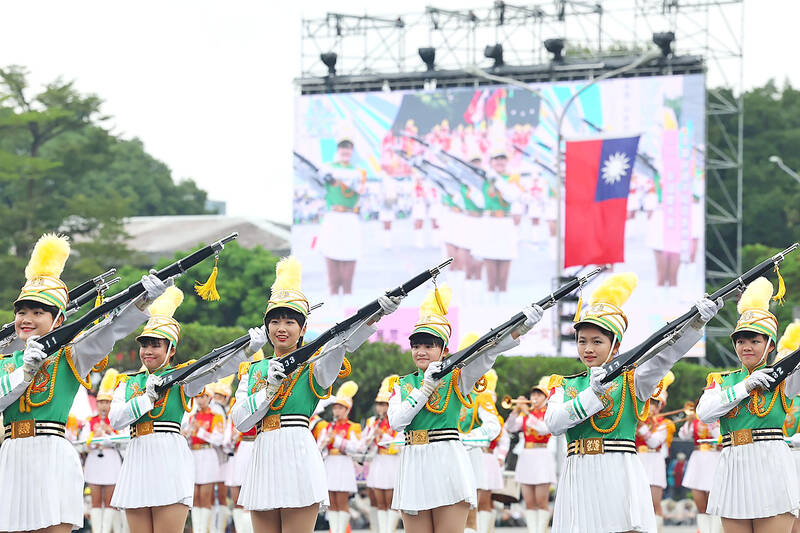
Photo: CNA
“We look forward to the gradual resumption of healthy and orderly cross-strait people-to-people exchanges after the loosening of border restrictions on both sides, thereby easing tensions in the Taiwan Strait,” she said.
Taiwan is on Thursday to reopen its borders, following severe restrictions for the past more than two years due to the COVID-19 pandemic. China continues to implement a “zero COVID-19” policy ahead of the 20th National Congress of the Chinese Communist Party, which begins on Sunday.
Tsai said China has threatened peace and stability in the Strait and the region through military intimidation, diplomatic pressure, trade obstructions and attempts to erase the sovereignty of Taiwan.

Photo: Sam Yeh, AFP
“During the past 73 years, Taiwanese have lived and grown together on this land, and have formed their own strong sense of identity and belonging. The broadest consensus among Taiwanese and various political parties is that we must defend our national sovereignty, and our free and democratic way of life. On this point, we have no room for compromise,” she said.
“Beijing authorities should not make any misjudgement on account of Taiwan’s vigorous democratic system,” Tsai said.
“They must not think there is room for compromise in Taiwanese’s commitment to democracy and freedom, or try to divide Taiwanese society by exploiting the fierce competition between our political parties,” she said.

Photo: Chiang Ying-ying, AP
“Such beliefs and actions would not benefit cross-strait relations, and will only push the two sides further from each other,” she added.
Although Taiwan’s COVID-19 pandemic prevention efforts have earned global recognition and helped the nation achieve 6.75 percent economic growth last year, the strongest in the past few years, Tsai noted greater challenges in the post-pandemic era: high inflation in Europe and the US, a looming global recession, the restructuring of global supply chains, climate change, Russia’s invasion of Ukraine, and China’s increased military activities in the South and East China seas and the Taiwan Strait.
“These developments are inextricably connected with Taiwan,” Tsai said. “With Taiwan a part of this changing landscape, we cannot leave things to chance. Instead, we must stand up for our democracy, and prepare prudently and sufficiently to respond to any possible contingency.”
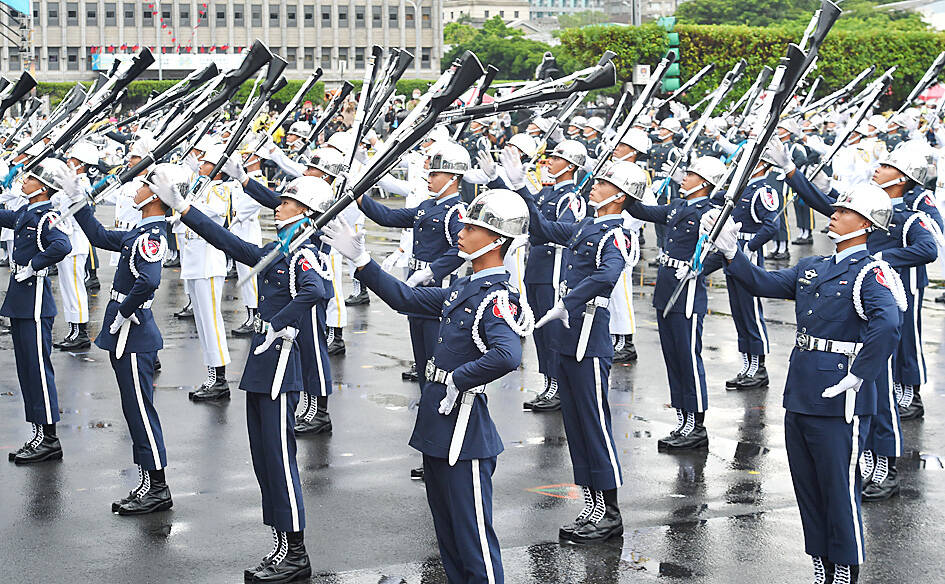
Photo: Liao Chen-huei, Taipei Times
Tsai pledged to improve the nation’s resilience in four key areas during the remaining two years of her term in office: economy and industry, national defense, social welfare, and a free and democratic government system.
Taiwan must continue to consolidate its advantages in the semiconductor sector, in addition to working to stabilize utility costs, boost investment in infrastructure, cultivate talent, ensure the security of critical infrastructure and achieve net zero carbon emissions by 2050, she said.
“I want to specifically emphasize one point to my fellow citizens and the international community: The concentration of the semiconductor sector in Taiwan is not a risk, but is the key to the reorganization of the global semiconductor industry,” Tsai said.
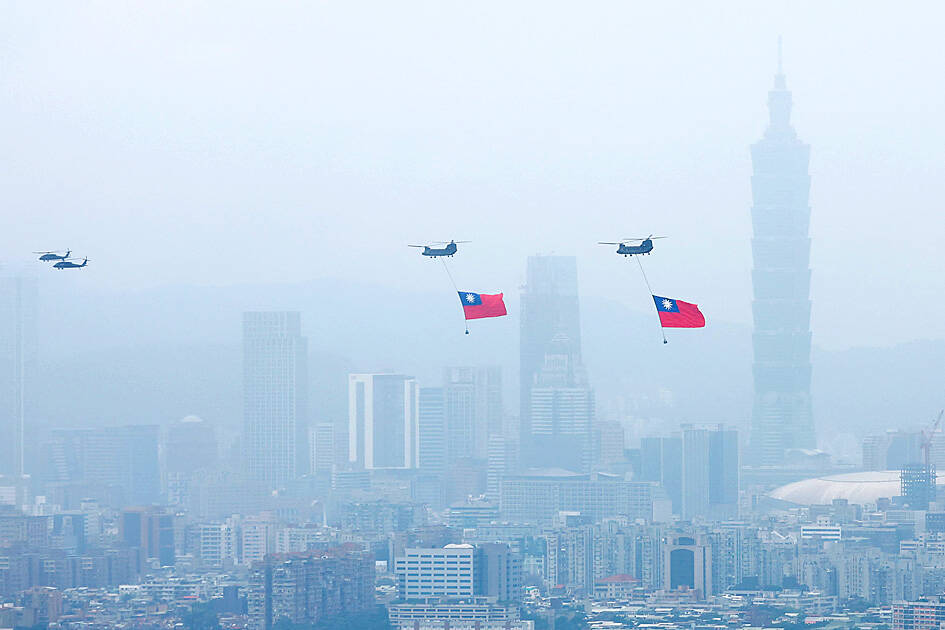
Photo: Carlos Garcia Rawlins, Reuters
To bolster Taiwan’s national defense capabilities and resilience, the government is ramping up mass production of precision missiles and high-performance naval vessels, she said.
It is also working to acquire small, highly mobile precision weapons to develop comprehensive asymmetric warfare capabilities, she added.
Taiwan’s indigenous submarine program made significant progress with the delivery of the nation’s first domestically developed and built 10,000-tonne landing platform dock Yushan two weeks ago, she said.
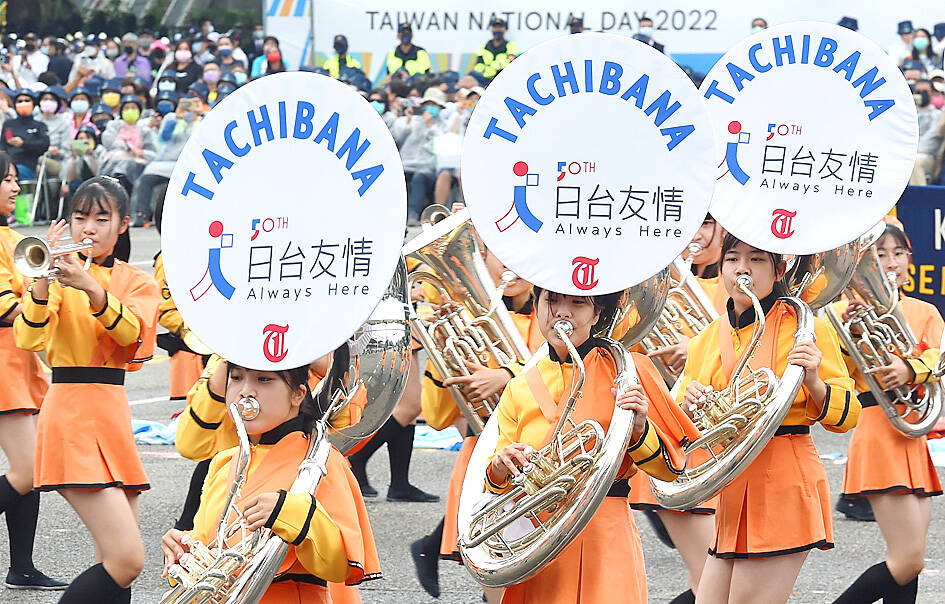
Photo: Liao Chen-huei, Taipei Times
An All-out Defense Mobilization Agency has been established to bolster military training capacity and refine reserve training programs, Tsai said.
“Through our actions, we are sending the message to the international community that Taiwan will take responsibility for its self-defense, that we will not leave anything to fate, and that we will work with our allies to jointly maintain security and stability in the region,” she said.
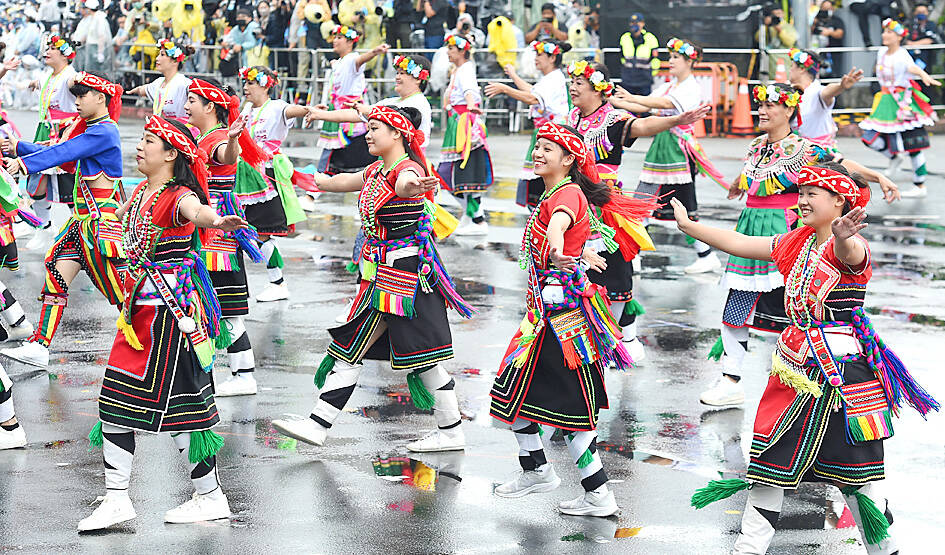
Photo: Liao Chen-huei, Taipei Times
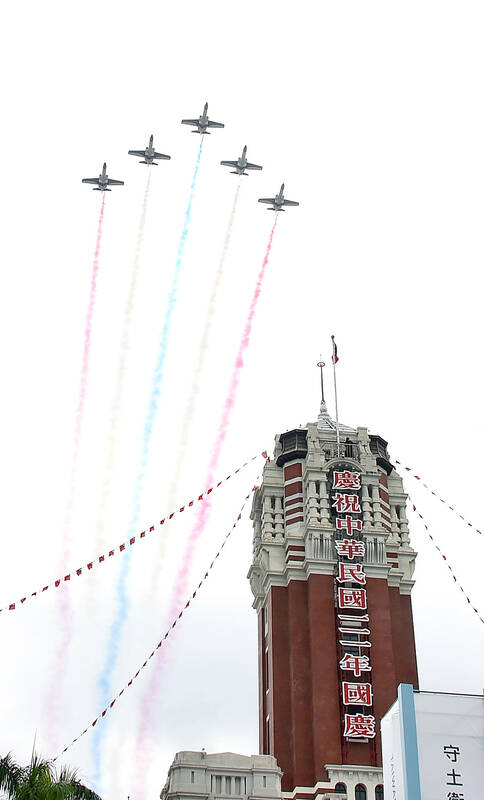
Photo: Tu Chien-jung, Taipei Times

SECURITY: As China is ‘reshaping’ Hong Kong’s population, Taiwan must raise the eligibility threshold for applications from Hong Kongers, Chiu Chui-cheng said When Hong Kong and Macau citizens apply for residency in Taiwan, it would be under a new category that includes a “national security observation period,” Mainland Affairs Council (MAC) Minister Chiu Chui-cheng (邱垂正) said yesterday. President William Lai (賴清德) on March 13 announced 17 strategies to counter China’s aggression toward Taiwan, including incorporating national security considerations into the review process for residency applications from Hong Kong and Macau citizens. The situation in Hong Kong is constantly changing, Chiu said to media yesterday on the sidelines of the Taipei Technology Run hosted by the Taipei Neihu Technology Park Development Association. With

CARROT AND STICK: While unrelenting in its military threats, China attracted nearly 40,000 Taiwanese to over 400 business events last year Nearly 40,000 Taiwanese last year joined industry events in China, such as conferences and trade fairs, supported by the Chinese government, a study showed yesterday, as Beijing ramps up a charm offensive toward Taipei alongside military pressure. China has long taken a carrot-and-stick approach to Taiwan, threatening it with the prospect of military action while reaching out to those it believes are amenable to Beijing’s point of view. Taiwanese security officials are wary of what they see as Beijing’s influence campaigns to sway public opinion after Taipei and Beijing gradually resumed travel links halted by the COVID-19 pandemic, but the scale of

A US Marine Corps regiment equipped with Naval Strike Missiles (NSM) is set to participate in the upcoming Balikatan 25 exercise in the Luzon Strait, marking the system’s first-ever deployment in the Philippines. US and Philippine officials have separately confirmed that the Navy Marine Expeditionary Ship Interdiction System (NMESIS) — the mobile launch platform for the Naval Strike Missile — would take part in the joint exercise. The missiles are being deployed to “a strategic first island chain chokepoint” in the waters between Taiwan proper and the Philippines, US-based Naval News reported. “The Luzon Strait and Bashi Channel represent a critical access

Pope Francis is be laid to rest on Saturday after lying in state for three days in St Peter’s Basilica, where the faithful are expected to flock to pay their respects to history’s first Latin American pontiff. The cardinals met yesterday in the Vatican’s synod hall to chart the next steps before a conclave begins to choose Francis’ successor, as condolences poured in from around the world. According to current norms, the conclave must begin between May 5 and 10. The cardinals set the funeral for Saturday at 10am in St Peter’s Square, to be celebrated by the dean of the College